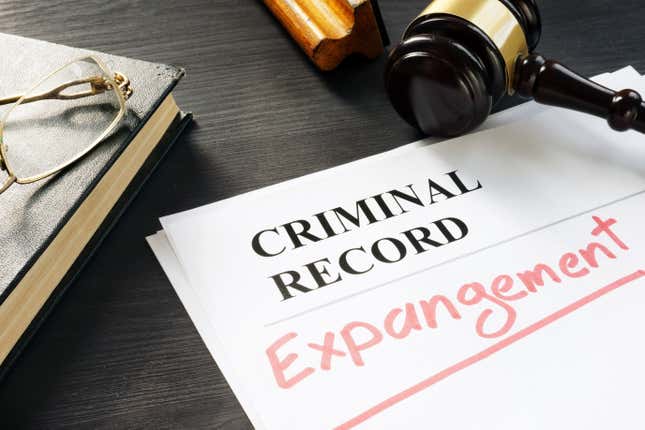
After being released from prison, those who were once incarcerated often experience tremendous difficulty getting re-acclimated to society, but if Democratic lawmakers get their way, California citizens still being punished for mistakes from their past will be able to get a new lease on life.
The Associated Press reports that after moving to automatically expunge marijuana convictions in California that date all the way back to 1975, the next plan of attack is to erase the criminal records of other qualifying convictions.
Per the Associated Press:
The lawmakers and dozens of supporters rallied in sweltering heat Tuesday supporting two Assembly-approved bills that would automatically expunge arrest and conviction records for an estimated 1 million residents who are already entitled under existing law because they have completed their sentences and supervision.
Also:
[San Francisco Assemblyman Phil Tang’s] bill would require the state attorney general to catalog qualifying arrest and conviction records of lower-level felonies and misdemeanors so they can be cleared. That’s similar to a law that took effect Jan. 1 requiring the attorney general to identify by July 1 those who are eligible to have their records scrubbed because California legalized recreational marijuana in 2016 and made the reduction in legal penalties retroactive.
In noting the legal restrictions far too many California residents face, Assemblyman Tang explained how these bills have the potential to completely change lives.
“Right now, if you serve your time you still can’t get housing, you still can’t get work, you still get treated like a criminal,” he said.
With limited opportunities to provide for themselves, recidivism far too often becomes an inevitability.
Jay Jordan, executive director of Californians for Safety and Justice, has been able to beat the odds but is keenly aware of the parameters he’s required to work within as a result of a robbery he committed 15 years ago at the age of 18.
“I can’t sell real estate, can’t sell used cars, can’t sell insurance, can never adopt, I can’t coach my son’s Little League team, can’t join the PTA, can’t chaperone him on field trips,” he said. “It just harms people. It doesn’t make economic sense, doesn’t make public safety sense.”
But the bills aren’t without their detractors. A state association of law enforcement records supervisors has dismissed the bills as “a legal liability” and “costly and burdensome,” while legislative analysts believe the bills could cost the state tens of millions of dollars. Jordan insists that cost could be offset by the economic boost created by former felons securing more jobs or—as lawmakers suggest—incorporating technology to expedite searches for qualifying records.
“Every right should be restored,” California Sen. Nancy Skinner of Berkeley said. “Once you’ve done your time, that’s enough.”

